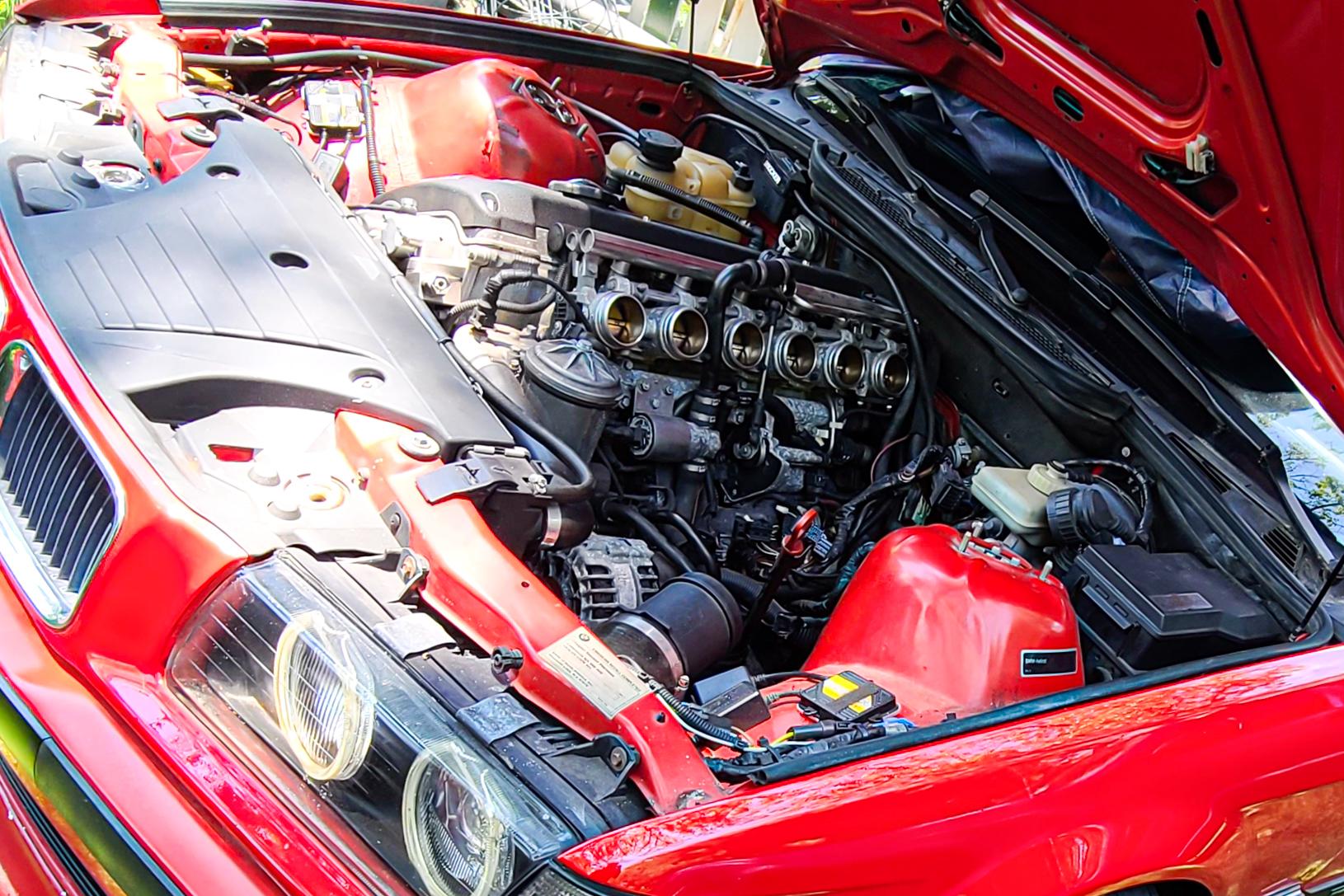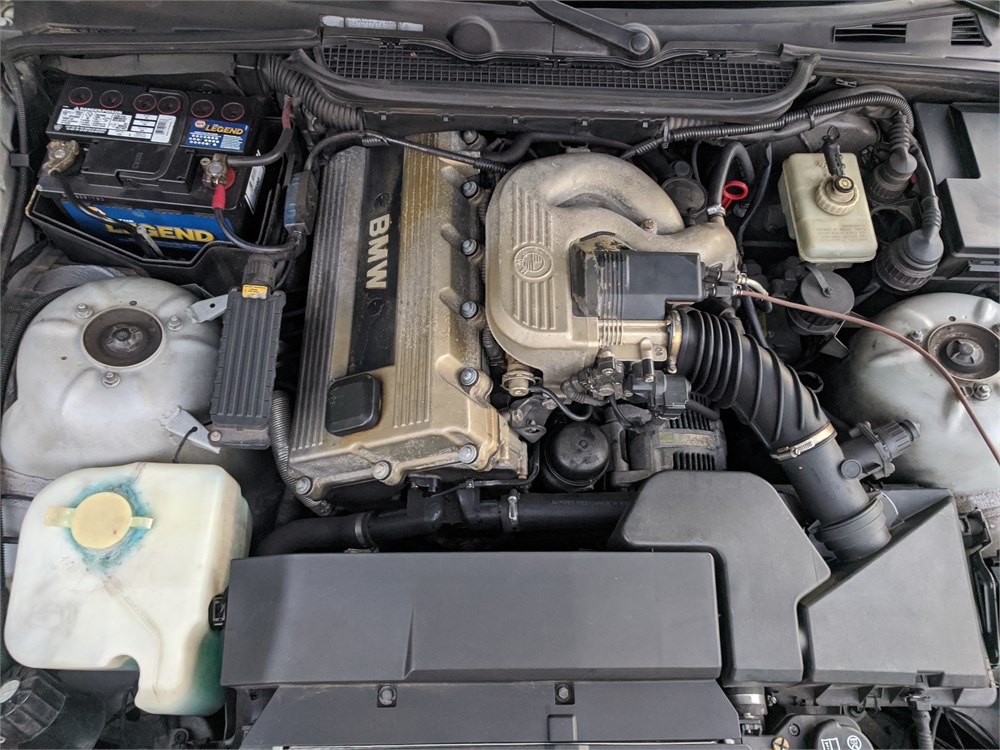BMW 318ti: A Traditional Compact with Ageless Charm
BMW 318ti: A Traditional Compact with Ageless Charm
Blog Article
Key Features to Look for When Acquiring an Engine for Automotive Applications
When taking into consideration the purchase of an engine for vehicle applications, several essential functions necessitate cautious analysis to guarantee optimum performance and capability. From power and performance capacities to fuel longevity, adherence, and efficiency to exhausts standards, each aspect plays a vital role in figuring out the engine's viability for details automotive needs.
Power and Performance
When choosing an auto engine, customers focus on power and efficiency to guarantee optimal driving experience and effectiveness. The power outcome of an engine, commonly gauged in horse power (HP) or kilowatts (kW), determines the velocity, full throttle, and total capabilities of a vehicle. Higher power ratings generally result in quicker acceleration and far better efficiency, specifically throughout surpassing or bring hefty tons. Performance, on the other hand, encompasses a broader spectrum of characteristics, consisting of gas efficiency, emissions, reliability, and total driving characteristics. A well-performing engine not just provides power effectively but also runs efficiently throughout various speed ranges and driving problems.
Additionally, factors such as engine crossbreed, variation, and turbocharging modern technologies play significant functions in boosting both power and performance levels. Eventually, picking an engine that offers a potent combination of power and efficiency guarantees a gratifying and reliable driving experience.
Fuel Effectiveness
Optimizing gas efficiency is a vital factor to consider for consumers when assessing vehicle engine alternatives. Modern engines with functions like straight fuel injection, turbocharging, and variable shutoff timing can dramatically enhance fuel efficiency by enhancing combustion processes and lowering energy loss.

Sturdiness and Reliability
Attaining lasting efficiency and reliable procedure is vital for customers assessing the resilience and integrity of automobile engines. When taking into consideration an engine for automobile applications, durability refers to the engine's capacity to endure wear, stress and anxiety, and severe operating problems over an extensive period. Reliability, on the various other hand, indicates that the engine can regularly do its desired function without unforeseen failures or failures.
Consumers need to look for engines built with high-quality materials and specific design to guarantee durability. Elements such as bearings, crankshafts, and pistons should be long lasting to manage the engine's power output without premature wear. Additionally, engines furnished with innovative air conditioning systems, effective lubrication, and robust filtration systems have a tendency to display greater degrees of integrity.
Normal upkeep and adherence to manufacturer referrals are likewise vital consider protecting an engine's toughness and dependability. By complying with upkeep routines, utilizing suggested get more fluids, and resolving any kind of concerns immediately, customers can make the most of the lifespan and performance of their automotive engines. Ultimately, focusing on longevity and integrity in engine option can bring about an extra rewarding ownership experience with less unforeseen disruptions.
Discharges Compliance
Ensuring compliance with discharges guidelines is an essential facet of examining automobile engines for environmentally aware customers. With enhancing concerns concerning air high quality and environmental effect, strict discharges standards have been placed in location worldwide to lower dangerous contaminants launched into the ambience. When buying an engine for automotive applications, it is important to consider its exhausts compliance to minimize the carbon impact and follow lawful requirements.
Modern engines are outfitted with sophisticated emission control innovations such as catalytic converters, exhaust gas recirculation (EGR) systems, and selective catalytic reduction (SCR) to decrease harmful exhaust gases like nitrogen oxides (NOx), carbon monoxide gas (CARBON MONOXIDE), and hydrocarbons (HC) These systems play a vital role in making sure that the engine fulfills the specified discharges standards and operates within allowable limits.

Cost-effectiveness
When taking into consideration automotive engine acquisitions, reviewing cost-effectiveness is extremely important for customers looking for both performance and value. It encompasses click site the total expenditures associated to maintenance, fuel intake, and possible fixings over the engine's life-span.
One trick element of cost-effectiveness is fuel performance. Engines that are made to make best use of gas economy can lead to significant cost savings in time, especially for individuals who drive regularly or over cross countries. In addition, thinking about the availability and price of spare parts and maintenance can add to the total cost-effectiveness of an engine. Making sure that repair and maintenance are sensible and accessible can prevent unanticipated financial worries down the line.

Verdict
To conclude, when buying an engine for auto applications, it is crucial to think about crucial attributes such as power and efficiency, fuel reliability, durability and efficiency, emissions compliance, and cost-effectiveness. These factors are important in guaranteeing that the engine satisfies the demands of the car and operates effectively in various driving conditions - bmw 318ti. Making an educated choice based upon these requirements will eventually result in a efficient and effective vehicle engine acquisition
From power and performance capabilities to sustain sturdiness, performance, and adherence to discharges standards, each facet plays a vital function in determining about his the engine's viability for particular automotive demands. Engines developed to run on alternative gas such as electric power, crossbreed systems, or biofuels can use improved gas economic climate and reduced discharges contrasted to standard gasoline or diesel engines. Customers should very carefully consider the fuel performance ratings and modern technologies incorporated right into automotive engines to make enlightened buying choices that align with their concerns for cost savings and sustainability.
When taking into consideration an engine for automobile applications, longevity refers to the engine's capability to withstand wear, stress and anxiety, and harsh operating problems over an extensive period.In final thought, when acquiring an engine for automobile applications, it is vital to consider essential attributes such as power and performance, gas toughness, effectiveness and reliability, exhausts conformity, and cost-effectiveness.
Report this page